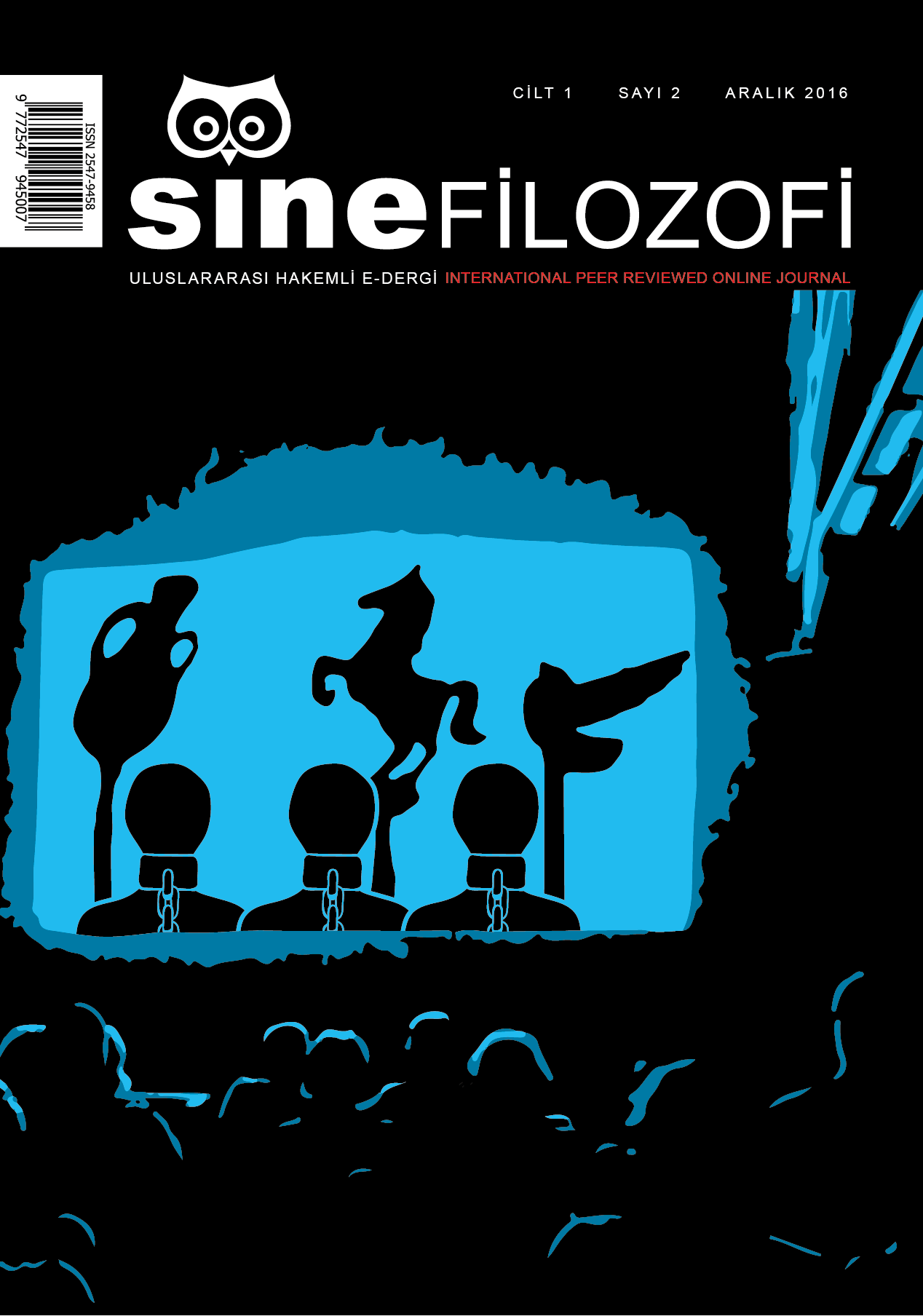Gücün Edimselleştiği An: Tüm Yargıların Ötesinde Kıyametin Olumlanması
The Moment the Power Actualised: The Affirmation of the Apocalypse Beyond all the Judgements
Author(s): Çağdaş Emrah ÇağlıyanSubject(s): Philosophy, Fine Arts / Performing Arts, Ethics / Practical Philosophy, Aesthetics, Film / Cinema / Cinematography
Published by: Serdar Öztürk
Keywords: Power; right; ethic; Spinoza; Apocalypse Now;
Summary/Abstract: Tendency of percepting the universe brought by our age has an anthropocentric character and creates a dogma towards individual freedom. Although people with this faith see themselves dominant on all of their activities and influences, what they find out is a system, which totally captures their freedom and they are not capable of changing it. Since they lack of codes determining how they would act against this situation, they are dragged by their emotions and ambitions, and finally embed in a captivity they presume freedom. Against this perception, there is a holistic comprehension of the World, that claims all of the incidents and phenomena become fact by natural or divine determination. Spinoza’s doctrine that hypostatizes only one substance is an important example that expresses this perception. If we affirm the existence of God or Nature as the only one substance, the perception of the human remain incapable to interpret the universe and all of the moral judgements become invalid. The events and the phenomena condemned with injustice and evilness constitute a web of obligations from the height of God; the one entity itself is composed of the interactions of power. In this direction, the ethic doctrine of Spinoza is based upon the concept of power. At the case, all of the creations are dependent on the natural determination, everyone act according to their power and deserve everything their power reach. Humans attain actual freedom, only if they comprehend the web of obligation they are in and find the codes for their actions. One of the movie examples manifests most effectively this ethic doctrine based upon the power and the right arose from the obligation is Apocalypse Now (F.F. Coppola, 1979). This un-anthropocentric doctrine is uttered by the protagonists in godlike positions. In this direction, aforesaid film is subjected to character-based text analysis and the way of concretising of a philosopical doctrine in cinema is examined.
Journal: SineFilozofi
- Issue Year: 1/2016
- Issue No: 2
- Page Range: 79 - 96
- Page Count: 18
- Language: Turkish

